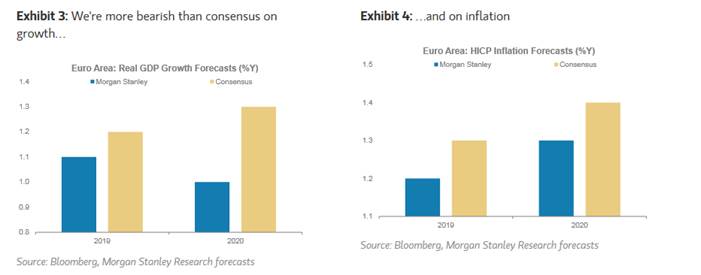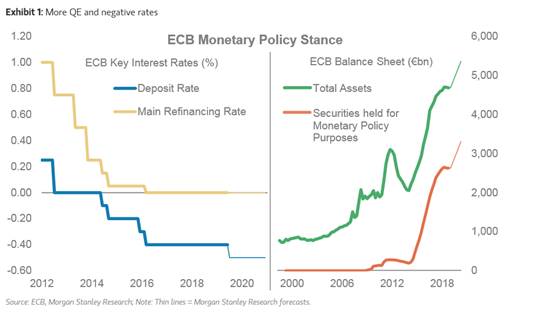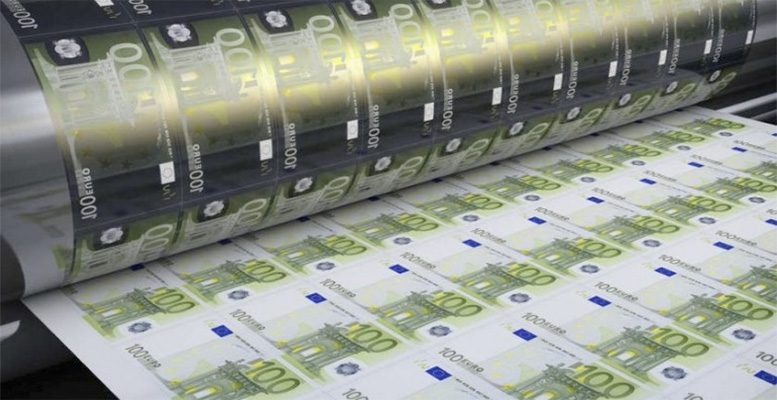Morgan Stanley | Low growth below the 2% threshold coupled with below-target inflation has led our macros to believe that the ECB is taking extra stimulus for granted. This would mean the return of the centra banks’ asset repurchase program.
The size and date are unknown, however our macros believe that the ECB could start with a € 45bn monthly repurchase as early as the 4Q19, with an announcement of the program’s return in September. There is still room within the ECB for the purchase of sovereign debt (especially if some of the aspects of the previous QE are modified), in addition to still having room for the purchase of corporate credit. In a grandstand scenario, the ECB could even follow Japan’s example, extending the range of assets to buy, with the inclusion of bank credit or RV UTF.

More than entering directly into QE 2.0, our macros estimate a rates cut first. We believe that it is possible that the depo rate will be further reduced, possibly 10bps to -0.50%, as early in the next meeting at the end of July, or it may be delayed until September.

The benefits of a new QE would not be the complete cure for weakness in the macro. The financial conditions are already at very low levels, and according to our estimates, the QE would not boost the economy more than 0.1-0.2% during the following years, which would have a very small impact on core inflation.
With respect to the impact on the markets, we have revised downwards our estimates for the IRR of the bund and we would expect a significant contraction in margins. The positive impact of a second QE could imply a re-rate in valuation of between 5-10% in P / E for MSCI EMU values. We would also expect a contraction in corporate spreads.





